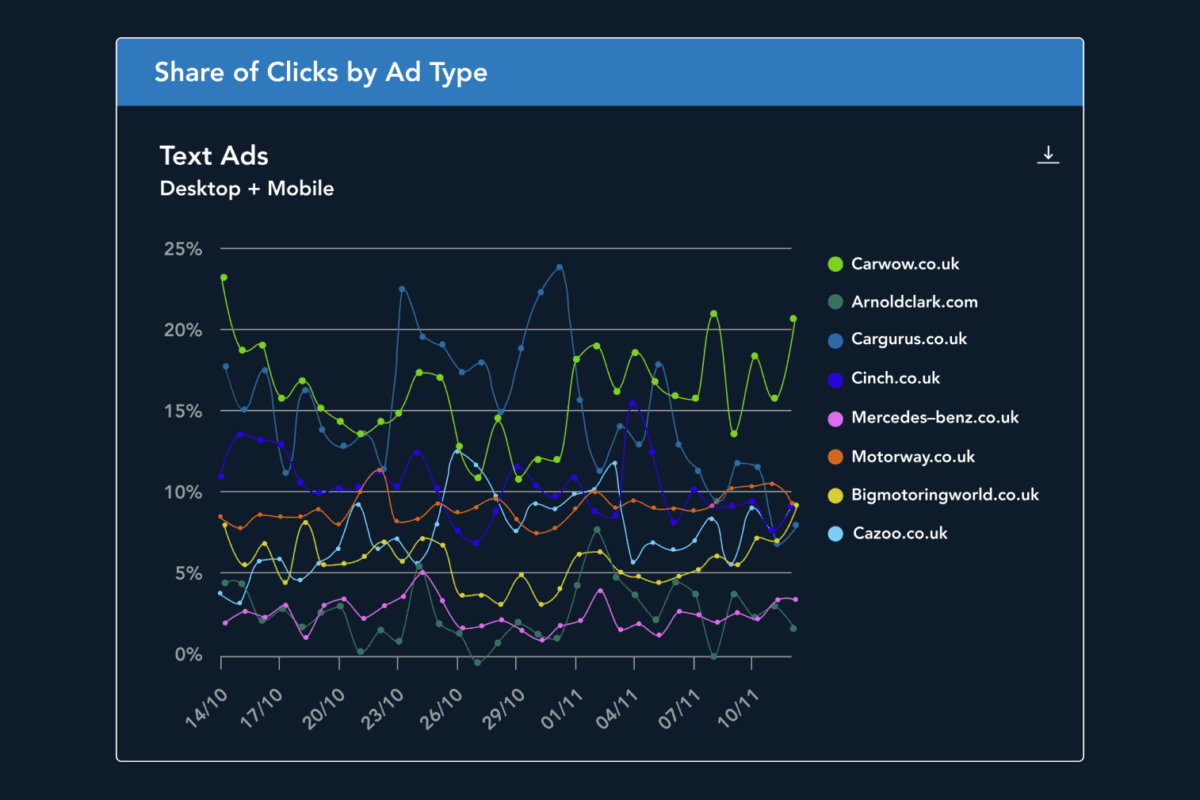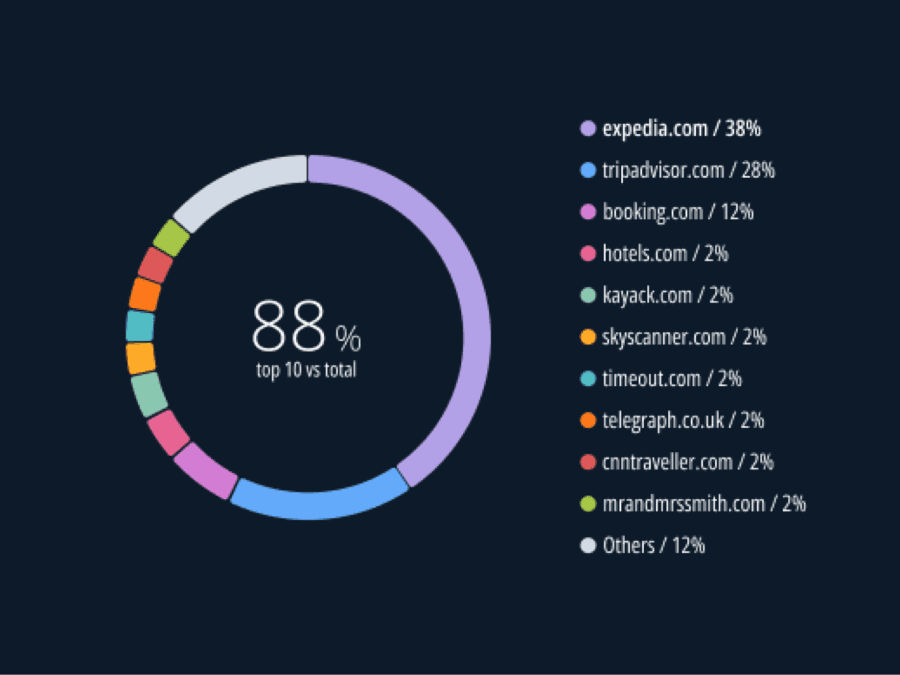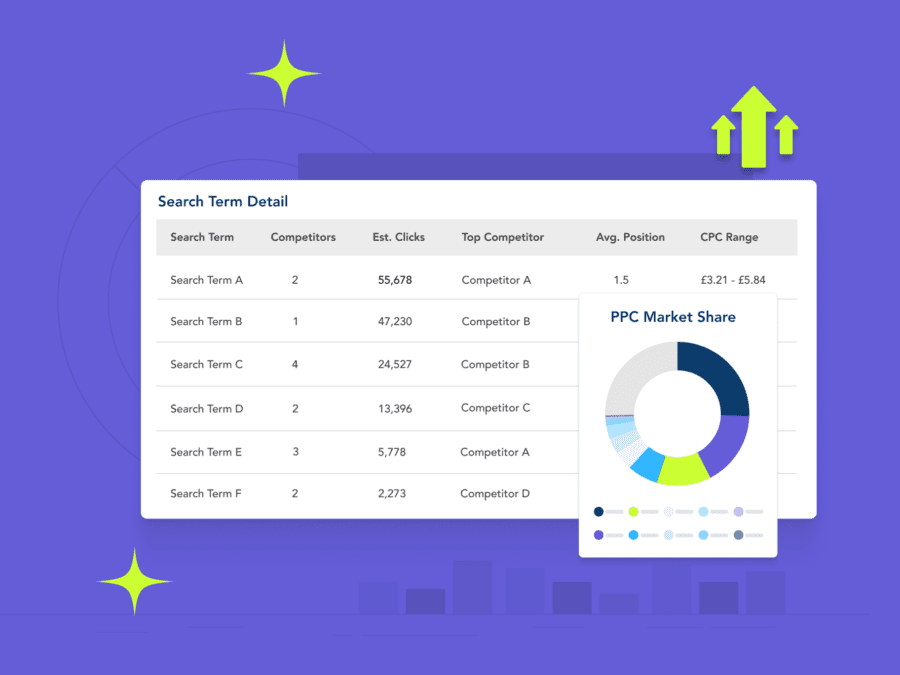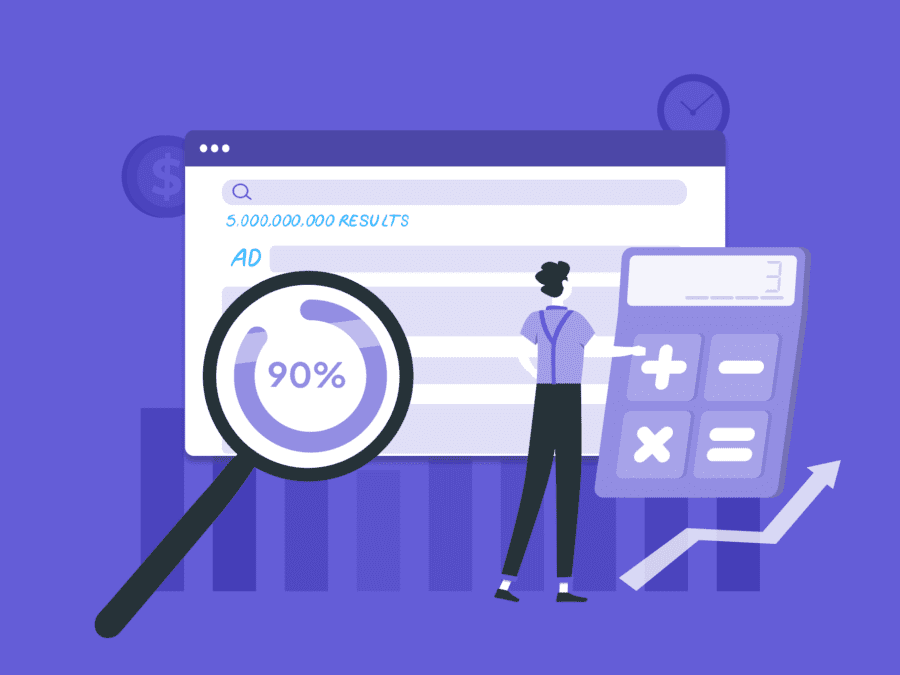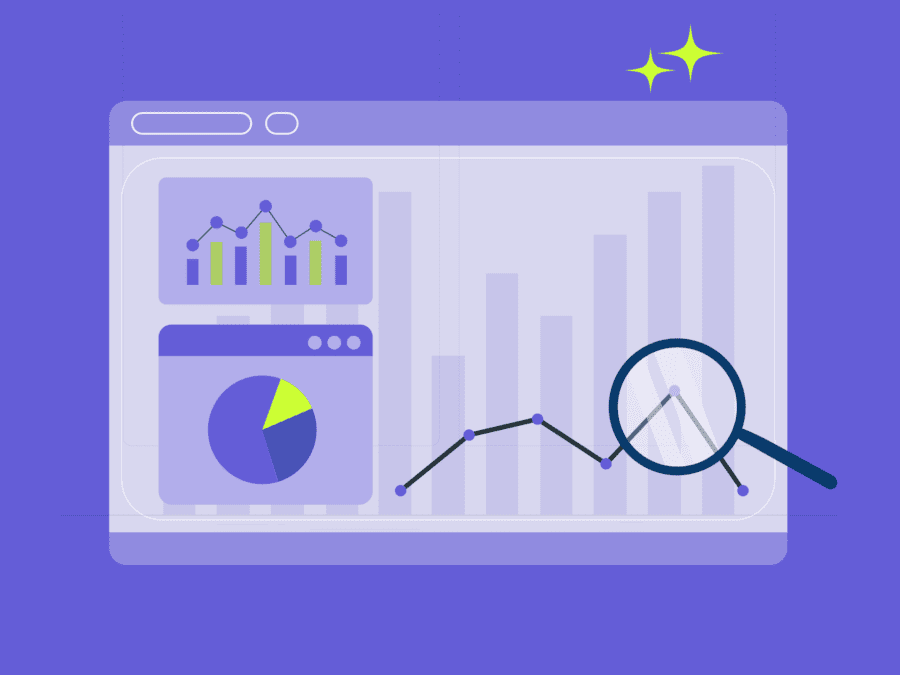Unlocking Enterprise growth with PPC software
Google Ads stands as a powerful platform, offering a comprehensive suite of tools for businesses to manage their pay-per-click advertising campaigns. From setting budgets and targeting audiences to crafting ad creatives and analyzing performance, Google Ads provides a robust foundation for engaging potential customers through search and display networks.
However, for enterprise brands spending millions on paid search, relying on Google Ads alone can lead to quickly hitting a performance ceiling
This is where PPC software steps in, offering a range of specialized tools and functionalities that extend beyond the core capabilities of Google Ads and Auction Insights, catering to the unique demands of sophisticated and expansive advertising operations.
The foundational capabilities of Google Ads
At its core, Google Ads equips advertisers with the essential building blocks for running PPC campaigns. This includes intuitive tools for campaign creation and structuring, allowing for the organization of ads into logical groups targeting specific products, services, or audiences.
The platform offers various keyword management features, enabling businesses to research, select, and organize the search terms that trigger their ads. Furthermore, Auction Insights provides basic reporting and analytics dashboards, offering insights into campaign performance metrics like clicks, impressions, and conversions.
For bid management, advertisers can leverage automated bidding strategies powered by Google’s machine learning algorithms, designed to optimize bids based on predefined goals. For many smaller businesses or those with relatively straightforward advertising needs, the functionalities offered directly within Google Ads can indeed be sufficient to achieve their marketing objectives.
Is Google Ads enough for enterprise brands?
As enterprise brands scale their online advertising efforts, they increasingly encounter limitations with the native insights offered by Google Ads and Auction Insights.
The sheer volume and intricate structure of their PPC operations—encompassing countless campaigns, keywords, and ad variations across diverse product lines, geographical regions, and marketing objectives—quickly outstrip the visibility provided by a singular platform view.
This lack of comprehensive insight results in operational inefficiencies, fragmented data, and significant delays in identifying crucial market trends and optimization opportunities. Consequently, enterprises struggle to effectively ensure budget efficiency, capitalize on emerging opportunities (particularly by tracking smaller, niche competitors across their vast campaign landscape), avoid diminishing returns as their spend escalates, maintain true ad competitiveness that goes beyond Google’s general recommendations, and ultimately secure a meaningful competitive edge against other large-scale advertisers.
When enterprise brands need more than Google Ads
While Google Ads provides a solid foundation, enterprise brands often reach a point where their scale and strategic ambitions necessitate the advanced capabilities of dedicated PPC software. These are the critical junctures where investing in specialized tools becomes not just beneficial, but essential for continued growth and competitive dominance:
Scalability beyond the basics: Centralized control for complex operations
Managing vast, multi-channel PPC campaigns with numerous keywords and ads becomes cumbersome in Google Ads for large enterprise brands. PPC software offers a unified platform for centralized control, streamlining workflows, ensuring brand consistency, and enabling efficient management of complex account structures, preventing errors and inefficiencies.
The need for deeper insights: Advanced analytics for holistic understanding
For enterprise brands with large, often decentralized advertising teams, PPC software provides crucial centralized control and governance. This ensures brand consistency across all campaigns, prevents wasted ad spend, reduces errors and compliance risks, and offers a holistic view of overall PPC performance.
The need for deeper insights: Advanced analytics for holistic understanding
Enterprise brands need granular, interconnected insights. PPC software should offer advanced, customizable reporting and integrate with BI tools for visualizing complex data, identifying trends, and generating actionable insights beyond standard reports, leading to better ROI.
Strategic competitive advantage: Market intelligence for an edge
When internal Google Ads optimization plateaus, understanding the competitive landscape is key. PPC competitive intelligence platforms like Adthena provide deep insights into competitor strategies, enabling enterprises to identify opportunities, anticipate moves, refine strategies, and gain a crucial market advantage through smarter keyword selection and bidding.
Advanced PPC reporting: Analytics that matter
Enterprise brands need in-depth insights into their complex advertising data to make informed strategic decisions. PPC software should offer advanced reporting features, customizable dashboards, and the ability to integrate with business intelligence tools. This enables comprehensive performance analysis across different channels, regions, and product lines, leading to better ROI optimization.
Unified performance: Integration with Enterprise ecosystems
Seamless integration with other enterprise systems, and ability to manage large amounts of data via API or Looker Connectors. This allows for a unified view of performance.
For enterprise brands, PPC software is not just a tool for managing ads; it’s a strategic platform that enables scalable growth and efficient collaboration across large teams. The ability to manage complexity and drive significant ROI across diverse advertising landscapes makes robust, multi-channel capable PPC solutions indispensable for enterprise success.
Core features of Enterprise-grade PPC Software
Keyword management: Tools for discovery, grouping, and bidding
Keyword management in PPC involves finding (discovery), organizing (grouping), and setting bid amounts (bidding) for the words that trigger your ads. Effective keyword management ensures your ads reach the right audience, are relevant to their searches, and that you bid strategically to achieve your advertising goals efficiently.
Keyword management with Adthena
Adthena enhances your keyword management by providing critical PPC competitive intelligence. It reveals the keywords your competitors bid on, highlights areas of keyword overlap and gaps in your strategy, and contextualizes your keyword performance within the broader market.
While not a direct tool for grouping or bidding, Adthena’s insights empower you to make smarter keyword discovery decisions, strategically group keywords based on competitive structures, and inform your bidding with a deeper understanding of the market, ultimately optimizing your PPC performance.
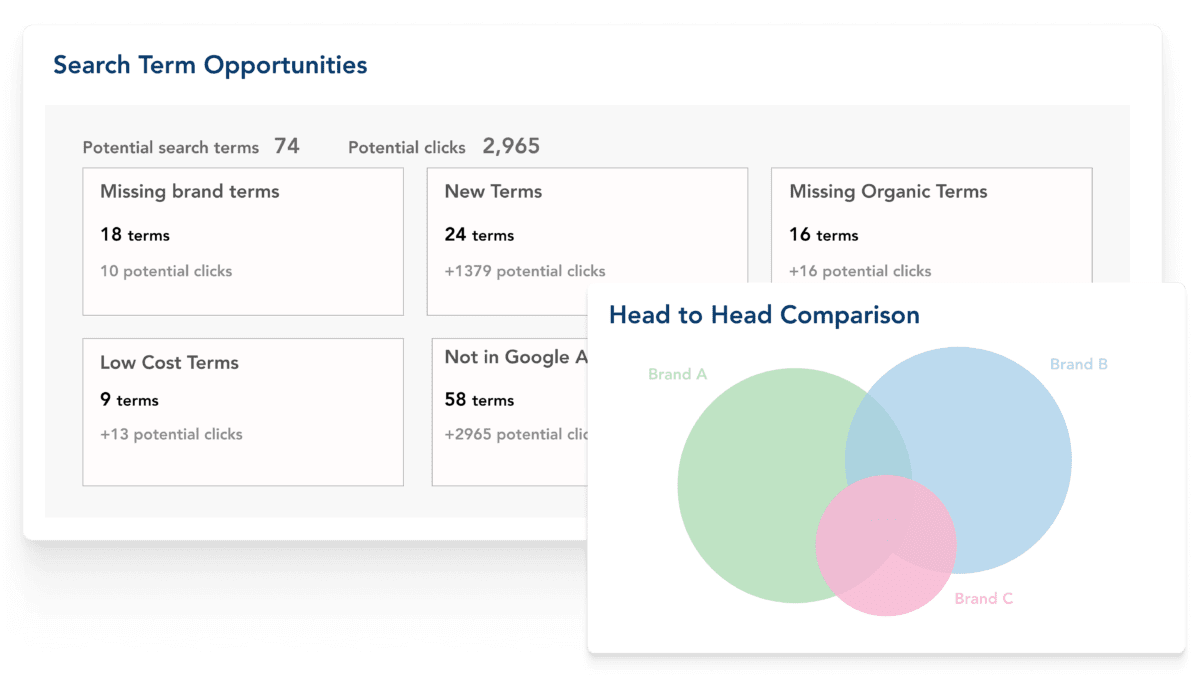
Adthena’s Search Term Opportunities shows PPC search terms that competitors are appearing on, that you are not, whilst Head to Head Comparison analyzes overlapping keywords to discover potential gaps in your strategy.
Using Adthena’s insights, we were able to determine which search terms might be important to appear on for the customer to increase their visibility in that product category, and which broad match keywords would be profitable to activate to grow their business.

Celia Rosado
iProspect
Paid Search Senior
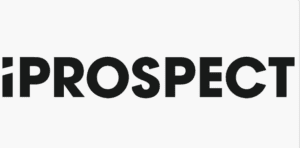
Ad copy optimization: Capabilities for A/B testing and performance improvement
Ad copy optimization is an ongoing process of improving your ad text (headlines, descriptions, calls to action) to boost PPC performance. This is primarily achieved through A/B testing, where different ad variations are compared to identify the most effective messaging. The goal is to increase click-through rates (CTR), improve Quality Score, boost conversion rates, and ultimately lower cost per acquisition (CPA) by creating compelling and relevant ads that resonate with your target audience and encourage clicks and conversions.
Ad copy optimization with Adthena
While not directly managing A/B tests, Adthena enhances ad copy optimization by providing crucial competitive intelligence. It allows you to analyze top-performing competitor ad copy, monitor competitor messaging changes, uncover high-performing phrases, and assess ad copy saturation. This market understanding empowers you to develop more informed hypotheses for your own A/B testing, leading to more compelling and strategically optimized ad copy that drives better PPC performance.
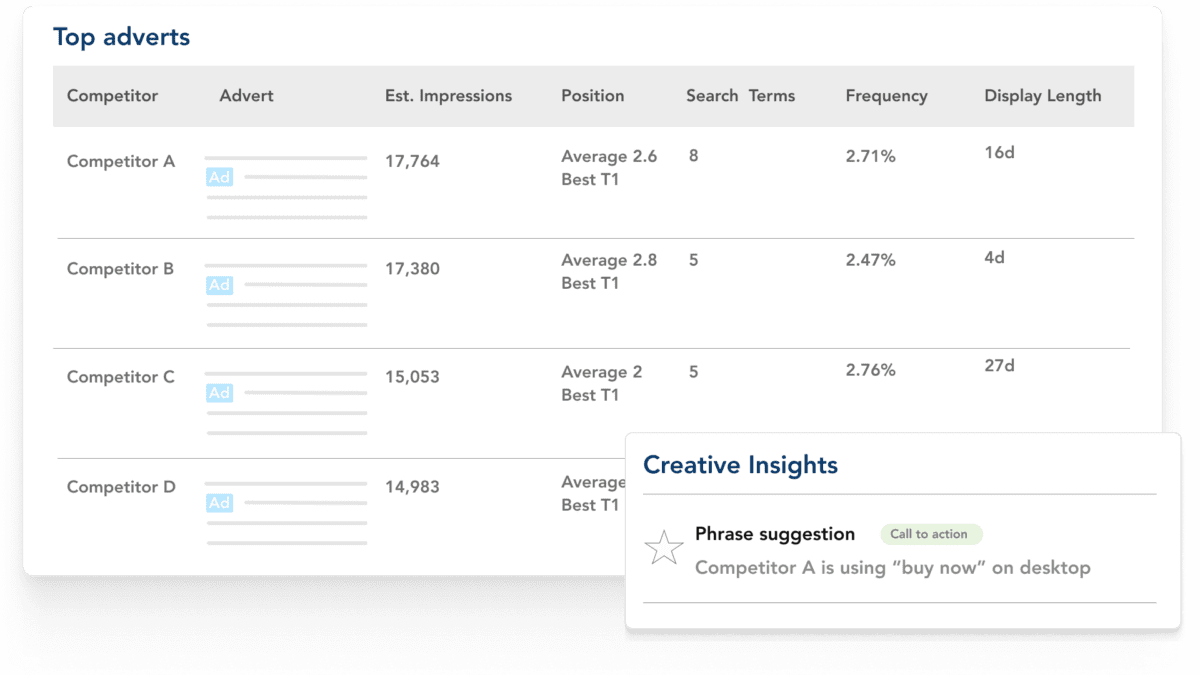
With Top Ads and Creative Insights, you gain Google Ad copy insights in one place and in just a few clicks – saving you hours in tedious competitive research.
Adthena’s unique competitive intelligence has allowed us to uncover gaps and opportunities in the market that were previously hidden, enabling us to make more informed optimisations to our campaigns.

Xanthe Pickford-Avery
the7stars
Head of Search
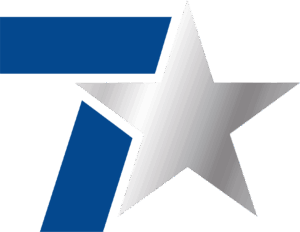
Budget & bid management: Automation of bidding strategies and budget allocations
Budget and bid management in PPC uses automation to strategically allocate your advertising budget across campaigns and dynamically adjust keyword bids to maximize performance and achieve specific goals like maximizing clicks, conversions, or return on ad spend, all while staying within your financial limits.
Automated PPC tools analyze real-time data to make intelligent bidding decisions and optimize budget distribution, eliminating manual adjustments and ensuring efficient spending.
Budget & bid management with Adthena
While Adthena doesn’t directly automate budget allocation or bidding within Google Ads, it provides crucial competitive intelligence to inform and enhance your budget and bid management strategies.
By revealing competitor spending habits, market share trends, and cost-per-click insights for specific keywords, Adthena empowers you to make more strategic decisions about where to allocate your budget and how aggressively to bid.
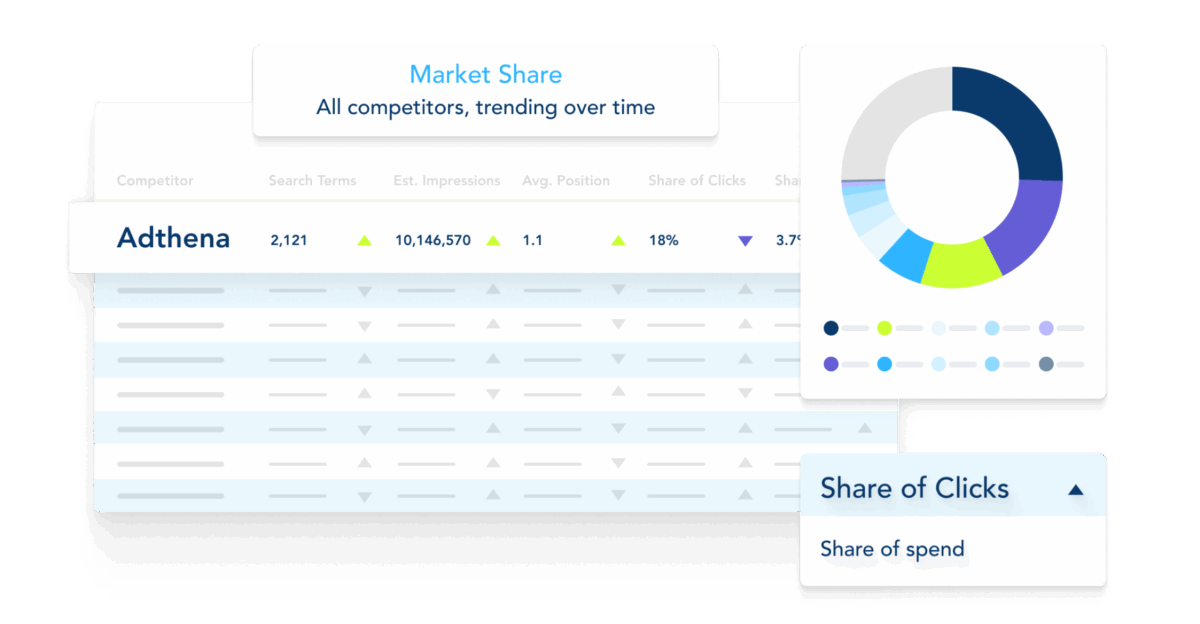
Adthena’s Market Share reveals competitor activity, spend, and key metrics on what’s driving their market positioning
Leaning on Adthena, we were able to track click share data accurately and timely during the launch to quickly seize opportunities when competitors were slow to respond.

Daniel Foot
Vodafone
Paid Search Specialist
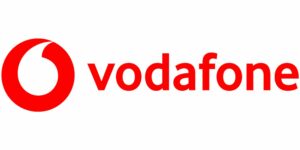
Analytics & reporting: Real-time dashboards and ROI tracking
Analytics and reporting provide immediate insights into campaign performance through real-time dashboards displaying key metrics. More importantly, ROI tracking measures the profitability of your ad spend by comparing revenue generated to advertising costs.
This integration of real-time data and profitability analysis enables advertisers to understand campaign effectiveness and make informed decisions to optimize their strategies for maximum return on investment.
Analytics & reporting with Adthena
Adthena supports analytics and reporting by providing a deep understanding of the competitive paid search landscape, offering insights into market share, trends, top-performing ads, and customizable reports.
While not a direct real-time dashboard for your own campaigns, its integration with BI tools allows you to combine Adthena’s competitive data with your performance metrics for a more comprehensive view of market dynamics and ROI context.
Features like Investment Intel further aid in understanding spend efficiency across locations and search terms, empowering you to make decisions that positively influence your return on investment.
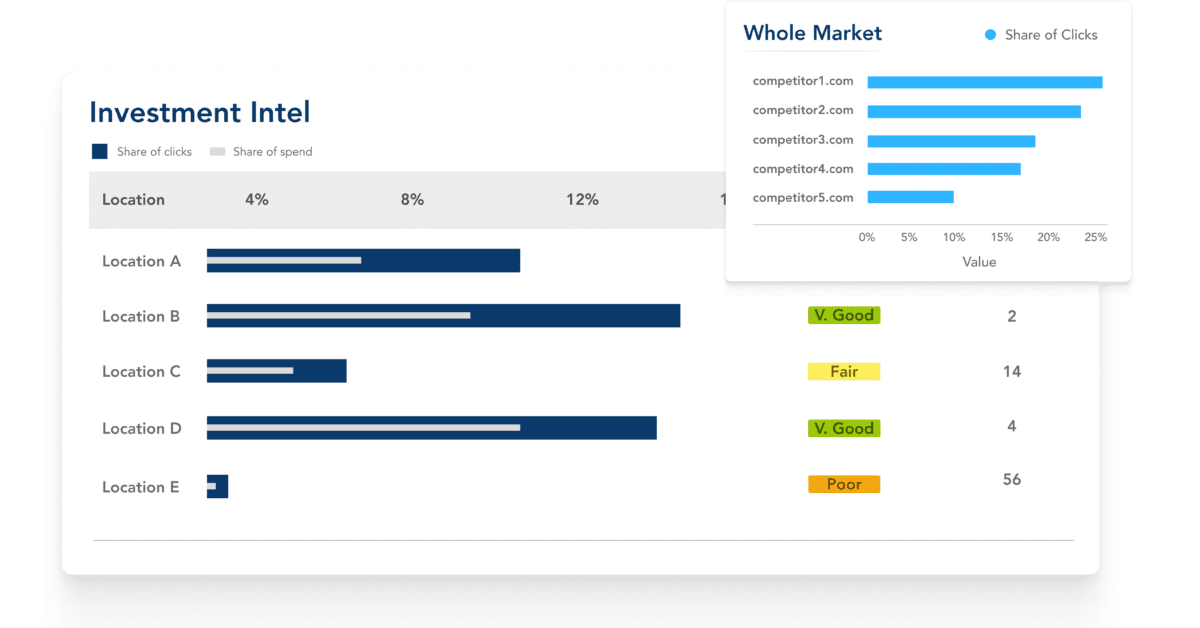
Track ROI by location and search term group to steer your entire strategy with Adthena’s Investment Intel.
With Adthena, it’s easy to show the Origin Energy team why we propose certain campaign decisions or to shape the business case for location-specific budget adjustments.

Taylor Suen
Atomic 212
Performance Director
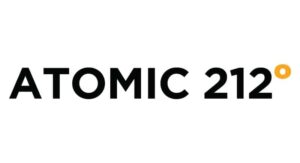
Integration capabilities: Compatibility with CRM and analytics platforms
Integration capabilities enable seamless connection with CRM and analytics platforms, creating a unified view of marketing and sales efforts.
CRM integration allows for tracking lead quality, accurate conversion attribution, personalized marketing, and measurement of customer lifetime value.
Analytics platform integration provides insights into website engagement, user behavior post-click, and the ability to build custom audiences.
This data synergy enhances reporting, improves targeting, and ultimately contributes to a more effective customer acquisition strategy by connecting advertising activities with customer and website data.
Integration capabilities with Adthena
Adthena supports integration primarily through its API and direct connectors for BI platforms like Looker Studio.
These integrations allow users to combine Adthena’s competitive paid search data with their internal campaign performance, CRM, and web analytics data within unified dashboards and reports.
While direct CRM integrations are less prominent, the API offers the flexibility for custom connections, enabling a more holistic view of marketing effectiveness by enriching internal data with valuable competitive context.
Challenges in PPC campaign management
Complex account structures: Managing multi-channel, multi-campaign environments
Enterprises often manage intricate PPC accounts, numerous campaigns targeting different products, regions, and audiences, and complex hierarchies of ad groups and keywords.
This complexity can lead to inefficiencies, inconsistencies in strategy, difficulty in maintaining oversight, and increased risk of errors in implementation and optimization.
Siloed campaign management across channels further exacerbates these issues, hindering a holistic view of performance and potential synergies.
Manage complex account structures with Adthena
While Adthena doesn’t directly manage the structural elements within these complex accounts, it provides a centralized external view of the competitive landscape across these environments.
By monitoring competitor activity on shared keywords, Adthena helps identify potential conflicts or opportunities for strategic alignment.
Its market share analysis offers a high-level view of performance across different segments, informing decisions about budget allocation and strategic focus within your complex structure.
Furthermore, by highlighting competitor strategies and top-performing ads, Adthena offers insights that can be applied consistently across your various campaigns and channels, promoting a more unified and informed approach to management.
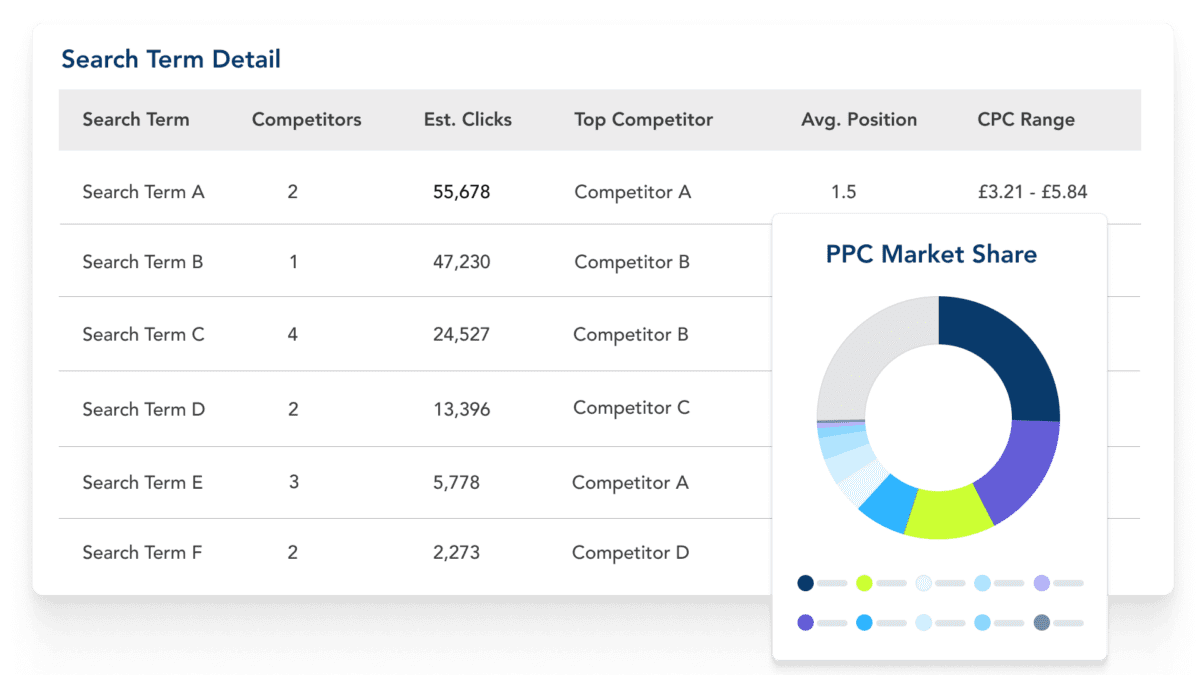
See which competitor terms are driving clicks, their average CPC and position with Adthena’s Search Term Detail.
Data overload: Navigating and interpreting large volumes of data
PPC advertisers are inundated with vast amounts of data from various sources, including Google Ads Auction Insights, analytics tools, and internal business systems. Sifting through this data to identify actionable insights, understand performance drivers, and make timely optimization decisions can be overwhelming and time-consuming. The sheer volume can obscure critical trends and make it difficult to discern signal from noise, hindering effective analysis and strategic planning.
Manage data overload with Adthena
Adthena acts as a filter and aggregator of crucial competitive data, providing a focused lens on the external market.
Instead of adding to the internal data deluge, it offers curated insights into competitor strategies, market trends, and potential opportunities. Features like market share analysis, competitor keyword breakdowns, and top ad identification help prioritize the data that directly impacts your competitive positioning and potential growth.
By visualizing complex competitive landscapes and highlighting key changes, Adthena simplifies the interpretation of external market dynamics, allowing you to contextualize your internal data and make more informed decisions without being overwhelmed by raw information.
Adthena shows us not only where we have opportunities to bring in more sales and revenue, but also where we can save money.

Jerry Jacobs
VodafoneZiggo
Paid Search Lead

Competitive landscape: Staying competitive in dynamic bidding environments
The Google Ads landscape is characterized by constant change, with competitors adjusting bids, launching new campaigns, and refining their messaging in real-time. Staying competitive requires continuous monitoring of competitor activities, understanding their strategies, and reacting swiftly to maintain or improve your market position.
Manual tracking of this dynamic environment is often insufficient, leading to missed opportunities, increased costs due to reactive bidding, and a potential loss of market share to more agile competitors.
Understand the competitive landscape with Adthena
Adthena provides continuous monitoring of the competitive landscape, alerting you to significant changes in competitor behavior, such as new keyword entries, ad copy updates, and shifts in market share.
This real-time intelligence enables you to react proactively rather than reactively.
By understanding competitor bidding strategies and identifying their top-performing keywords, you can optimize your own bids and keyword targeting to remain competitive.
Adthena’s insights into competitor spend and market share also help you gauge the intensity of competition for specific terms, allowing for more informed bidding decisions and strategic adjustments to maintain a strong competitive edge.

Adthena Smart Monitor provides real-time PPC alerts on competitor bidding adjustments and market shifts.
Smart Monitor allows me to make informed decisions on whether or not we need to defend our position and change our bidding strategy. Using this feature, I can easily identify threatening competitor movements or new competitors entering my search term groups.

Janet Ranola
Koala
Paid Media Manager

Brand protection: Safeguarding brand terms against unauthorised competitor activity
Competitors bidding on your brand terms can dilute your brand presence, drive up your advertising costs, and potentially divert valuable traffic to their sites.
Manually monitoring the SERP for such brand infringement can be a laborious and often incomplete process. Failing to effectively protect your brand terms can negatively impact brand recognition, customer trust, and overall marketing ROI.
Protect your brand with Adthena
Adthena offers dedicated brand protection features that automatically monitor the search landscape for unauthorized competitor bidding on your brand terms. It provides alerts when competitors appear on your brand keywords, allowing for timely intervention and enforcement of your brand guidelines.
By identifying these infringements, Adthena helps you quantify the potential impact on your traffic and costs, enabling you to take appropriate action to reclaim your brand territory and ensure that searches for your brand primarily lead to your own website. This proactive monitoring safeguards your brand equity and optimizes your brand-related advertising spend.
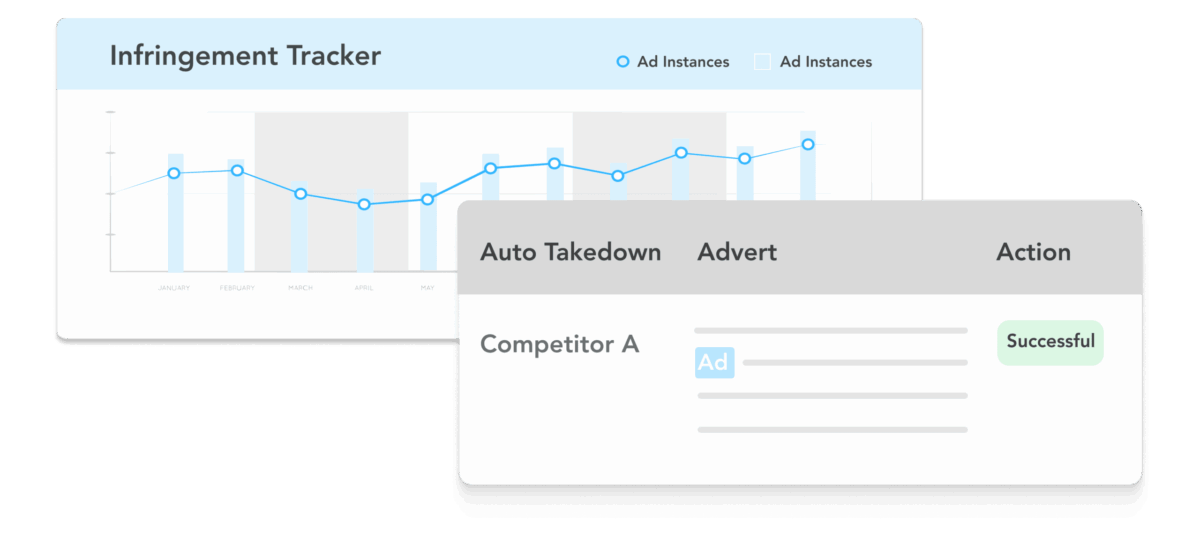
Adthena’s Infringement Tracker continually maps and monitors all competitive and partner activity around your brand terms.
By identifying opportunities across multiple markets, we’ve been able to reallocate savings into incremental campaigns and focus on acquiring new customers, all while protecting our brand against competitor activity.

Jack Jarvis
Serotonin
Head of Paid Search

Choosing the right PPC Software for your business
Selecting the appropriate PPC software is a critical decision that significantly impacts the efficiency and effectiveness of your paid search efforts.
This guide outlined key assessment criteria to consider when evaluating different solutions: scalability to accommodate growth, the breadth and depth of features offered, seamless integrations with your existing marketing and sales ecosystem, the quality of support provided, and overall cost considerations.
To help navigate the competitive landscape, the following table positions Adthena against industry alternatives, highlighting its unique capabilities in providing competitive intelligence for enhanced PPC performance.
While many platforms offer tools for campaign management, automation, and reporting, Adthena distinguishes itself by offering in-depth insights into competitor strategies, market trends, and brand protection, empowering businesses to make more informed and strategic decisions to gain a competitive edge.
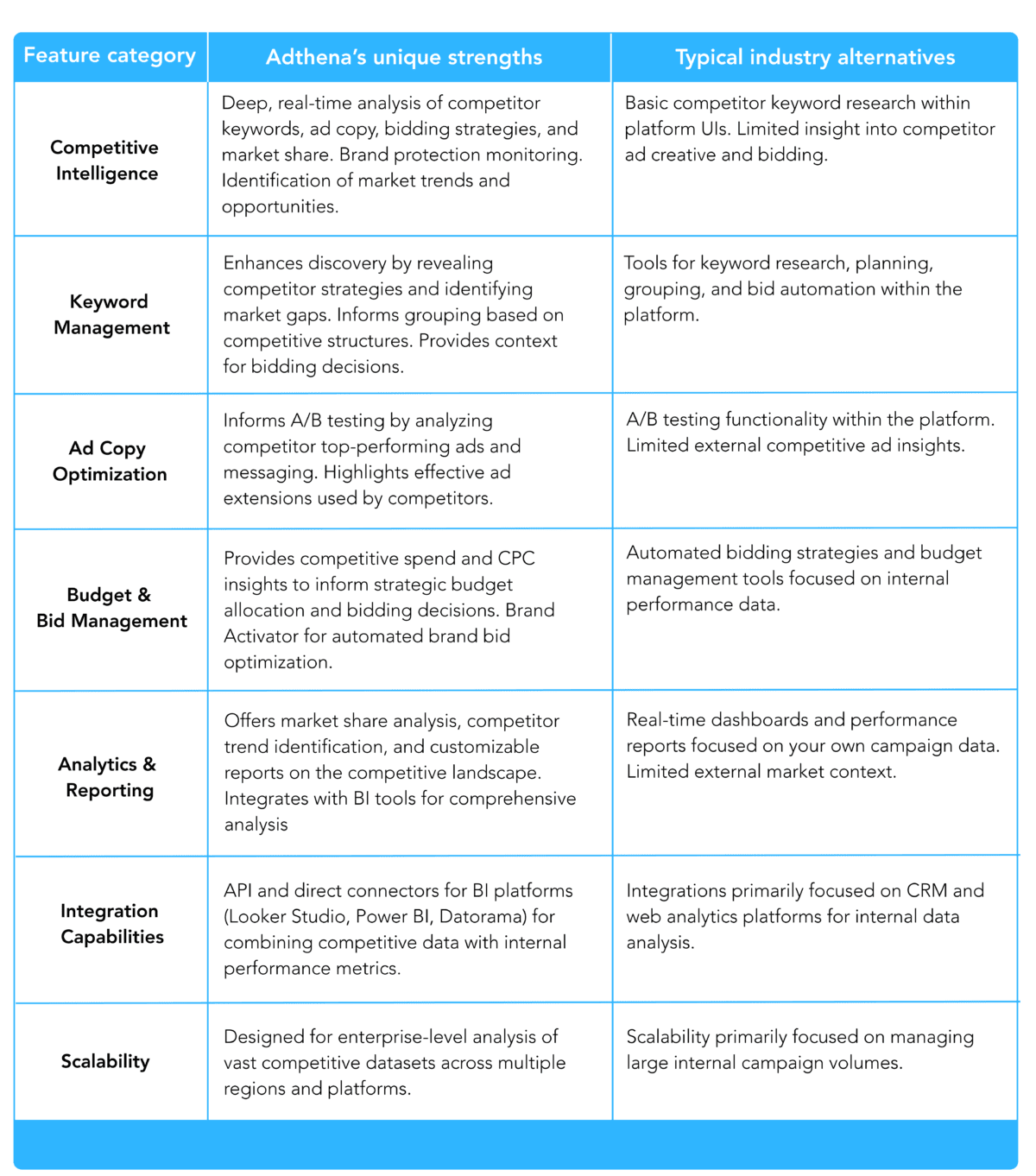
By understanding these assessment criteria and recognizing Adthena’s distinct focus on competitive intelligence, businesses can make a more informed decision when choosing the PPC software that best aligns with their strategic goals and need for a competitive advantage in the dynamic world of online advertising.
Explore Adthena in your own time
Take an interactive tour of Adthena to help inform your decision when choosing the PPC software for your business.
